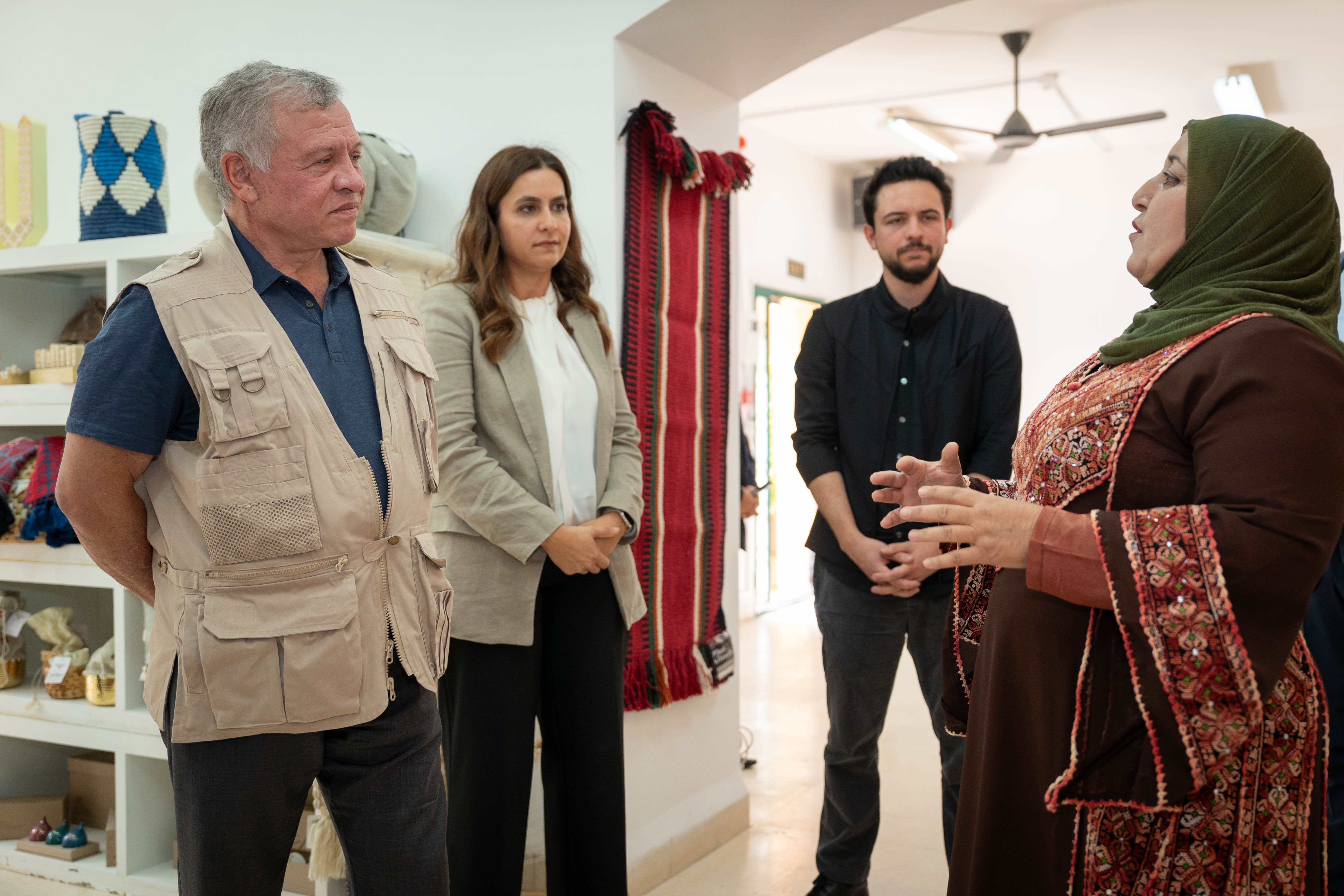King visits Fortress of Machaerus, Bani Hamida Women Weaving Project


© أرشيف الديوان الملكي الهاشمي
© Royal Hashemite Court Archives
His Majesty King Abdullah, accompanied by His Royal Highness Crown Prince Al Hussein bin Abdullah II, on Tuesday, visited the Fortress of Machaerus, and called for developing and protecting the tourist site.
King Abdullah listened to a briefing by Tourism Minister Makram Queisi on the tourism development plan of the Fortress of Machaerus and Madaba.
Minister Queisi said the Fortress of Machaerus is a tourist attraction that carries historical and religious importance, since it is among the five sites on the Vatican-approved Christian pilgrimage trail, which also includes the Baptism Site of Jesus Christ, Mount Nebo, the Church of Our Lady of the Mountain, and Mar Elias.
He noted that the ministry completed the first phase of the Christian pilgrimage trail, which extends for 16 kilometres between Mount Nebo and the Baptism Site, and is currently studying implementation of the second phase, which would extend for 30 kilometres between Mount Nebo and the Fortress of Machaerus.
The minister said the Fortress of Machaerus has witnessed a remarkable 600 percent surge in the number of visitors, compared to the same period of 2022, highlighting that the ministry is working on improving services and infrastructure at the site.
Also in Madaba, His Majesty and Crown Prince Al Hussein visited the Jordan River Foundation’s (JRF) Bani Hamida Women Weaving Project, which seeks to revive the craft of weaving and traditional Bedouin rug-making.
Supervisor Amal Abu Quaoud said the project contributed to the sustainable development of Mukawer and to protecting the social identity of Bani Hamida area.
She said the project has empowered over 1,600 women in 13 villages, adding that women taking part in this project have produced 420 items in 2022.
For her part, JRF Director General Enaam Barrishi said the foundation’s social projects have contributed to empowering thousands of Jordanian women and enhancing their abilities to have a sustainable income.
She added that the JRF’s programmes and social activities continue to see remarkable interest among women in the local communities.


